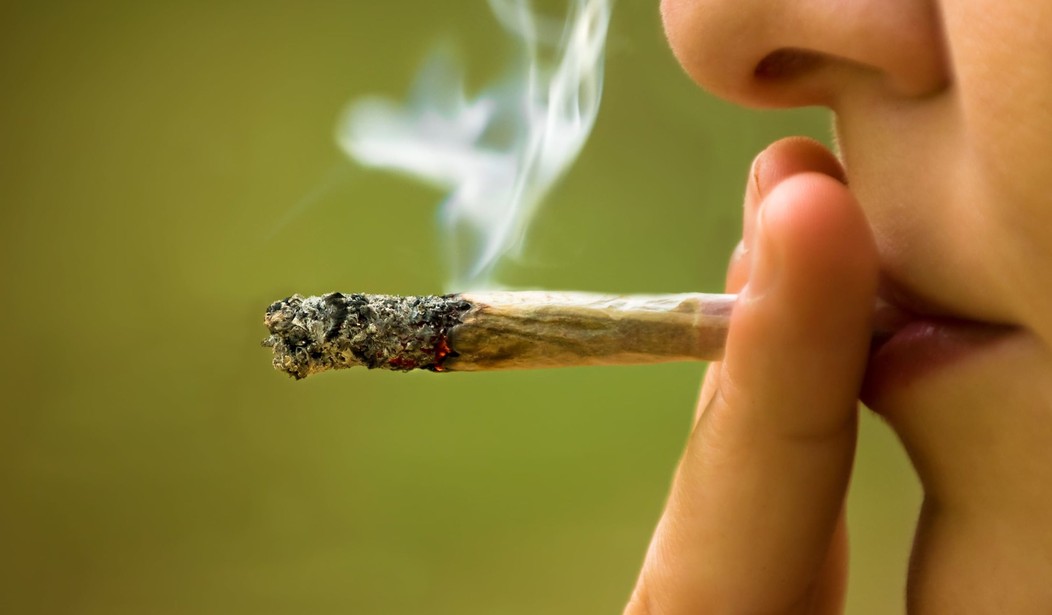Because California, Maine, Massachusetts and Nevada voters legalized recreational marijuana Tuesday, 21 percent of Americans — nearly 68 million people — now live in states where it’s OK to take as many tokes over the line as they please.
Backers of medical marijuana ballot proposals also celebrated victory this morning in Florida, North Dakota and Arkansas.
However, Arizona voters defeated a ballot proposal to legalize copping a marijuana buzz just for the fun of it.
Opponents of legalizing weed said the Arizona loss should be a huge red flag that the marijuana-reform crowd has only had success in the most liberal states and will encounter pushback among more conservative voters.
Still, Rep. Earl Blumenauer, a Democrat from Oregon, told the New York Times he could foresee the Trump administration quickly moving to legalize marijuana, or at least starting to treat weed like alcohol and with each state deciding its regulations.
“The new administration is not going to want to continue this toxic and nonproductive war on drugs,” Blumenauer said.
On the other hand, while President-elect Donald Trump has supported the legalization of medical marijuana, he has also said the use of recreational pot should be left up to individual states.
But with his chest swelling with pride after victories in four states, Ethan Nadelmann, executive director of the Drug Policy Alliance, said the win in Massachusetts “powerfully demonstrates that this movement is now bicoastal and soon to be national.”
Lynne Lyman, California state director of the Drug Policy Alliance, said her state’s approval of Proposition 64 would serve as a “new gold standard for how to legalize marijuana responsibly.”
California will now have a formal regulatory system for what was already one of the state’s largest businesses.
“This not only protects youth from accessing marijuana products, but it also protects them from being harmed by the criminal justice system,” Lyman said.
Gavin Newsom, the lieutenant governor of California, said supporters of national marijuana legalization have new power following the Nov. 8 approval of ballot proposals in four states.
He said that is especially true on the West Coast, where the addition of California and Nevada to the list of states that have legalized pot forms a mighty marijuana political block.
Recreational marijuana use was already legal in four states going into the November elections, along with the District of Columbia.
And the concept, at least, does seem to have widespread support.
Most people in America, whether they are smoking or not, would probably agree that people should be able to light up in the privacy of their homes.
A Gallup Poll released in Oct. 2016 showed 60 percent public support for legalized pot.
The Gallup poll also showed support for legalizing marijuana use was 77 percent among adults ages 18 to 34, and 45 percent of adults age 55 and older.
But it could be those numbers are not telling the real story.
The problem, according to a study written by William A. Galston and E.J. Dionne Jr. and published by the Brookings Institution, is that not everyone who supports marijuana legalization is as full-throated a proponent as are the leaders of groups like the National Organization for the Reform of Marijuana Laws and the Drug Policy Alliance.
It’s like this: Even though people told Gallup they don’t think legalized marijuana would be bad, how many of them believe that it would be good?
It’s one thing to be an open-minded individual, but do you want Cheech and Chong living next door?
“Support for legalization, though growing markedly, is not as intense as opposition, and is likely to remain relatively shallow so long as marijuana itself is not seen as a positive good,” Galston and Dionne wrote in 2013. “Whether opinion swings toward more robust support for legalization will depend heavily on the perceived success of the state legalization experiments now under way — which will hinge in part on the federal response to those experiments.”
Ethan Altieri, the executive director of NORML, saw no reason to worry. He said the rising tide of support for pot legalization is an unstoppable force of nature.
“Election Day dealt another body blow to our nation’s costly, failed, and discriminatory policy of marijuana prohibition,” said Altieri.
“If anyone thought our victories in 2012 and 2014 were a passing fad,” Altieri added, “it is now clear that they were mistaken.”
But let’s be realistic. Ethan Nadelmann said he had a hard time believing the Trump administration would go along with federal marijuana legalization.
“The prospect of Rudy Giuliani or Chris Christie as attorney general does not bode well,” Nadelmann told the Washington Post. “There are various ways in which a hostile White House could trip things up.”









Join the conversation as a VIP Member